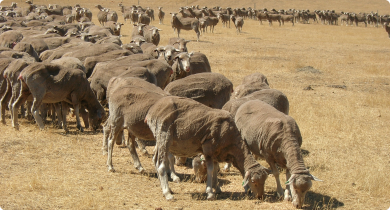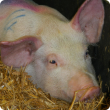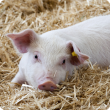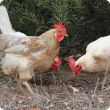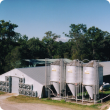Livestock health & diseases
Western Australia’s freedom from many pests and diseases allows our livestock producers access to a wide range of international and domestic markets. To maintain this enviable biosecurity status, the Department of Primary Industries and Regional Development ensures significant livestock disease is investigated. This information helps to assure trading partners that we are free of diseases.
Some diseases can have devastating effects on the livelihoods of everyone in the supply chain. To ensure the impacts on the economy and community are minimised, the department maintains trained, response-ready staff and systems to ensure an emergency animal disease incident is promptly and efficiently controlled. In addition, the risk of introduction of exotic disease is also managed by ensuring stockfeed contains appropriate ingredients.
Filter by search
Filter by topic
- (-) Remove Livestock species filter Livestock species
- Livestock & animals (22) Apply Livestock & animals filter
- Biosecurity & quarantine (22) Apply Biosecurity & quarantine filter
- (-) Remove Emergency animal disease preparedness filter Emergency animal disease preparedness
- Livestock disease surveillance (21) Apply Livestock disease surveillance filter
- Biosecurity (21) Apply Biosecurity filter
- Livestock biosecurity (19) Apply Livestock biosecurity filter
- Pigs (8) Apply Pigs filter
- Livestock management (4) Apply Livestock management filter
- Horses (4) Apply Horses filter
- Beef cattle (4) Apply Beef cattle filter
- Poultry & birds (3) Apply Poultry & birds filter
- Sheep (3) Apply Sheep filter
- Livestock movement & identification (3) Apply Livestock movement & identification filter
- Goats (3) Apply Goats filter
- Dairy cattle (3) Apply Dairy cattle filter
- Emergency response (3) Apply Emergency response filter
- Wildlife biosecurity (2) Apply Wildlife biosecurity filter
- Camelids (1) Apply Camelids filter


